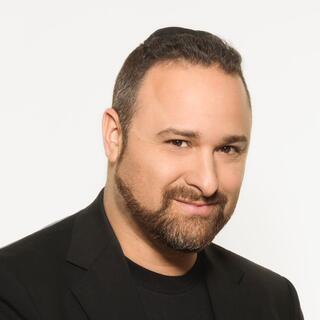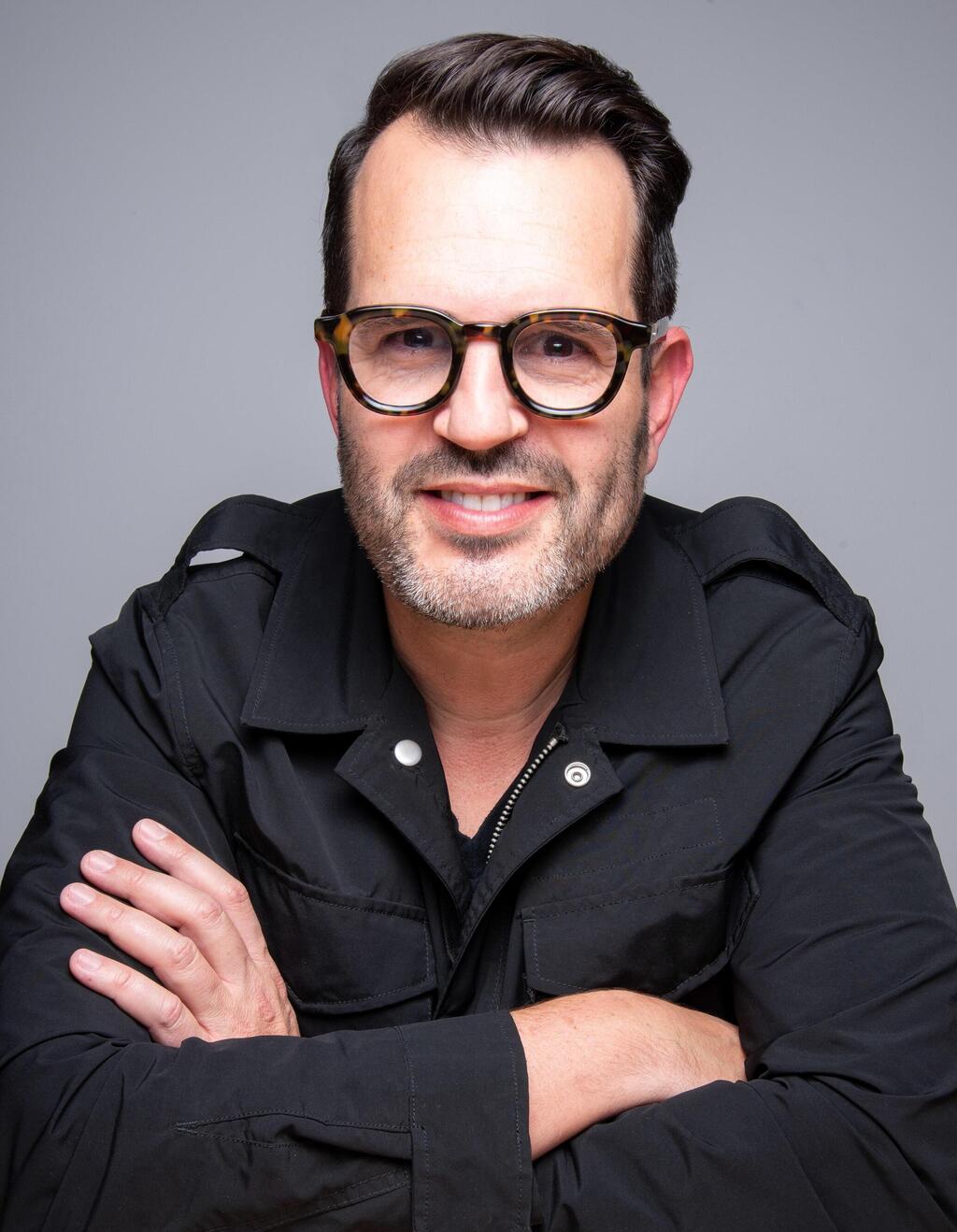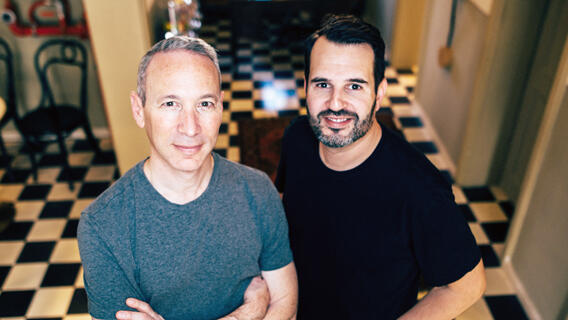Shai Wininger, co-founder of Fiverr and Lemonade, is one of Israel's most prominent serial entrepreneurs. With over three decades of experience in building successful companies, he has become a household name in the global tech scene. But these days, he is mainly concerned, warning that Israel's once-thriving tech ecosystem is at risk of losing the very grit and resilience that made it world-renowned.
In a special interview, Wininger discusses the challenges facing Israel’s tech sector, including the growing brain drain, the lack of government support for startups, and the impact of political division on the country’s economic future. Yet despite these obstacles, he remains deeply invested in Israel’s potential, emphasizing that there has never been a more critical time to remind the world of the nation’s incredible resilience. "Building and growing companies here is what Zionism is all about," he says.
Wininger began his entrepreneurial journey over 30 years ago, "and as a self-proclaimed maker, I’ve always been drawn to building things." Over the years, he founded and built several companies, with the two most recent — Fiverr and Lemonade — now publicly traded on the NYSE.
'Despite the turmoil, they continued to deliver'
For the past decade, he has been focused on product innovation and AI, particularly its impact on organizational productivity. "This concept, which I call the “Autonomous Organization,” is at the core of Lemonade and drives its extreme efficiency," according to Wininger.
He said that he is proud of the resilience of the team at Lemonade throughout the last year and a half of war. "Despite the turmoil, they continued to deliver, helping Lemonade push forward. In many ways, the office became a place of solace — where we could lean on each other and find strength in the community we’ve built," he explains.
'The realization that an end to the bloodshed isn’t in sight — and that my kids will also be forced to live in this impossible reality — has taken a toll on me'
Wininger says he, like all Israelis, was "shaken to the core" by the events of October 7 and everything that followed. "For much of the last year and a half, our nation has experienced profound grief and despair. Beyond the horrors our people endured, these events shattered the hope for a better future alongside our neighbors. The realization that an end to the bloodshed isn’t in sight — and that my kids will also be forced to live in this impossible reality — has taken a toll on me," he says.
He believes that the war, and the crisis of the COVID-19 pandemic that came before it, has taken a toll on the new generation of tech entrepreneurs as well. Still, he is impressed by these young men and women.
"The younger generation of entrepreneurs is sharper, more business-oriented, and has a clearer understanding of what it takes to succeed globally than I ever did. Unlike in the past, when startups were purely tech-driven, today’s founders are well-versed in the product, market dynamics and scaling. They seek advice, collaborate and share knowledge in ways that help them learn fast and avoid mistakes," he explains, "That said, I worry that we’re at risk of losing what made Israeli tech exceptional —our relentless work ethic."
'The younger generation of entrepreneurs is sharper, more business-oriented, and has a clearer understanding of what it takes to succeed globally than I ever did. Today’s founders are well-versed in the product, market dynamics and scaling'
Wininger points out that Israeli startups in the 90s had a fighting chance in the global arena because "they were willing to work twice as hard. Joining a startup meant sacrificing some personal comfort and work-life balance in pursuit of something bigger, and that was OK. We were all burning the midnight oil and happy doing it because it gave our lives meaning, provided for our families, and made us proud to shape the future."
However, the development centers established in Israel over the years have brought with them a more relaxed attitude and a stronger emphasis on work-life balance. "This, combined with increased competition over hiring engineers, drove compensation higher while lowering performance expectations. The imbalance between available engineering jobs and top-tier talent intensified this trend, leading to extreme employment terms — inflated compensation, flashy perks, and declining performance standards," he said.
"Then came COVID, which normalized remote work and further distorted workplace dynamics. It feels like the very notion of what it means to ‘work’ has gone off track over the past five years. Given the headwinds Israeli companies already face in this region, we can’t afford to lose our grit, which made our ecosystem what it is today," according to Wininger.
'Despite Israel’s strong talent pool, many top entrepreneurs and engineers relocate to the U.S. or Europe once their companies grow... As a result, Israeli-founded companies end up contributing more to foreign economies than to Israel itself'
What are some of the tech trends to pay attention to in Israel?
"Globally, I think we’re going to see a renaissance in mechanics, material engineering, and biology over the next decade. Quantum computing will likely take center stage as the fight for GPUs fades into the past. The rapid advancement of AI as a software creation tool will fundamentally shift the skills and talent companies seek.
"I expect scientists and researchers to play a more central role in the near-future workplace, as AI increasingly takes over application-level engineering. As a result, software-only companies will likely become poor investments over time. I believe companies that aren’t tackling truly hard problems — whether scientific, regulatory or in providing complex real-world services — will struggle to compete and maintain an edge in the coming years. These global trends will inevitably shape Israeli companies as well, driving demand for new and evolving skill sets"
What are some of the weaknesses in the Israeli tech ecosystem?
"Despite Israel’s strong talent pool, many top entrepreneurs and engineers relocate to the U.S. or Europe once their companies grow. The reasons vary — better access to funding, larger markets, or the challenges of scaling from Israel. As a result, Israeli-founded companies end up contributing more to foreign economies than to Israel itself.
"The government’s lack of support for the tech sector has only worsened and accelerated this phenomenon. Many founders I know feel that building an international business from Israel without proper government incentives simply isn’t worth it, leading to billions of dollars in lost tax revenue.
'I want a government with ministers I’d want to hire for one of my companies — the kind of people you look up to. Unfortunately, most Israeli politicians wouldn’t pass a single interview with any successful company'
"On top of that, the current administration’s politicization of the tech sector — branding it as left-wing — has caused unbelievable damage. Instead of embracing the country’s strongest growth engine, cheap politics have alienated it. As someone who identifies with the right on the political spectrum, I can say that the real weakness of the Israeli tech ecosystem isn’t the ecosystem itself—it’s the government’s failure to recognize and support it."
How do you see the political leadership of Israel changing over the next decade?
"Successful companies reinvent themselves all the time. At Lemonade, we have a culture of change and are the closest I’ve seen to a real meritocracy. We’re passionate about efficiency, performance, value creation, and impact — all while keeping people and empathy at the core. I want to see a government built on similar principles. But I’d settle for one that simply operates with a purpose beyond the political survival of its supreme leader.
"I want a government with ministers I’d want to hire for one of my companies — the kind of people you look up to. Unfortunately, most Israeli politicians wouldn’t pass a single interview with any successful company. As for leadership, I’d love to see a modern thinker — a hands-on, pragmatic, experienced and logical person who believes in getting things done and measures success by real, proven impact on people’s lives. Someone who finds common ground among our people and earns votes by being a great unifier, not a great divider."
<< Get the Ynetnews app on your smartphone: Google Play: https://bit.ly/4eJ37pE | Apple App Store: https://bit.ly/3ZL7iNv >>
Wininger says he is concerned about two major trends affecting Israel and the Jewish people that, when combined, "could create a perfect storm and pose a real threat to our future."
The first, he says, is "the growing divide within the Jewish people, driven by a government that has reignited internal sectarian tensions, deepened discrimination, and completely delegitimized anyone who doesn’t support the regime. This is by far the least presidential and least ‘of the people’ government I can remember."
"Unlike what propaganda channels would have you believe, the real divide isn’t between right and left — it’s the abyss separating corruption from values. This isn’t just an internal crisis; our enemies hear our divisions loud and clear, and I have no doubt they are trying to exploit them," Wininger says.
Fools like Kanye West, who think they can use the Holocaust as a publicity stunt, are dangerous. And with the rise of extreme free speech on platforms like X, I believe we lack the tools to properly combat it
The second threat is the normalization of antisemitism. "This phenomenon, once dormant, has reared its ugly head and is now being legitimized as a mainstream opinion," he says.
"Fools like Kanye West, who think they can use the Holocaust as a publicity stunt, are dangerous. And with the rise of extreme free speech on platforms like X, I believe we lack the tools to properly combat it. This is something I think about a lot, and it should be a strategic priority for Israel’s next administration," according to Wininger.
What would you say are the biggest lessons and mistakes you’ve made throughout your career?
"I’ve made many mistakes, but I’ve learned to course-correct quickly and not let the fear of future ones stop me from making decisions effectively. I believe the worst decisions are the ones you don’t make.
"I try to instill a culture where mistakes and failures are a natural part of the daily routine. If there are no failures, you’re playing it too safe. I also work to create a culture of elasticity — where everything can, and will, change. Lemonade employees know this and adapt to it.
"There’s something incredibly liberating about a structure that continuously optimizes itself to achieve the company’s goals while allowing failure to exist without overreacting to it.
Who has been your biggest professional mentor?
"I never had a mentor figure per se, mostly because it wasn’t a thing when I started my career. That’s not to say I didn’t learn a lot from others. My wife, who has always been my closest and most trusted friend, along with my parents, super-smart kids, team, and partners, have all been great sources of learning and inspiration. Most of what I know today, or the good decisions I’ve made in the past, can be credited to them.
'A lot has been said about our culture, but looking at 2024, there’s no better time to remind the world how incredibly resilient we are as a nation'
Wininger says there is something "truly unique" about Israeli talent. "A lot has been said about our culture, but looking at 2024, there’s no better time to remind the world how incredibly resilient we are as a nation," he adds.
"Lemonade, for example, just finished the year with the strongest results in its history. We’ve either hit or exceeded all our internal targets — all while the country is in historical turmoil, with many team members in reserve duty, war on seven fronts, daily missile attacks on major cities, and widespread uncertainty."
He sees the success of his own business, and that of tech throughout the country as part of the Zionist dream. "There’s no other place on earth like Israel, and I believe that building and growing companies here is what Zionism is all about," he concludes.






